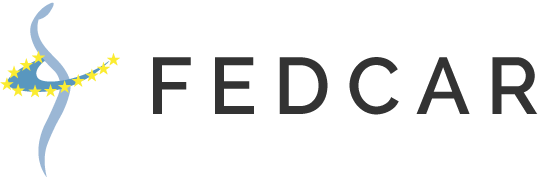Declaration on professional liability in dentistry :
The dental care provided to the patient is governed by a code of ethics that must not vary according to the economic framework of the practice (see note 1).
Whether the dental clinic is part of a dental chain, a professional company or the sole property of a single practitioner, responsibility towards the patient must be identical.
FEDCAR recalls that the independence of professional judgment is a deontological principle protected by the European judge (see note 2) and the European legislator (see note 3).
It must lead to the conscientious determination of healthcare acts in the sole interest of the patient.
The practice in an independent dental clinic, a public institution or a dental chain, as a liberal profession or as en employee, must not effect of professional independence.
In view of its mission to promote dental patient safety and exchange best practice in the regulation of dental professionals, FEDCAR recommends to dental regulators that any individual in charge of a dental clinic, whatever its economic nature is, should be subject to the same code of conduct as the dental practitioner working with the patient.
Adopted in Extraordinary General Meeting, Brussels, 4 December 2024
Notes
Note 1 :Statement adopted in General Assembly of FEDCAR in Porto on 10 May 2019.
Note 2 : See Case C-531/06, 19 May 2009 (para.61-62).
Note 3 : See Article 8(1)&(2) of eCommerce Directive 2000/31.
Annex : Presentation of the EU context of the professional liability
1-The EU Court of Justice made clear the professional independence of healthcare providers is of importance and cannot be challenged by an economic model (source : C-531/06, para.61-62, du 19 mai 2009):
- “It is undeniable that an operator having the status of pharmacist pursues, like other persons, the objective of making a profit. However, as a pharmacist by profession, he is presumed to operate the pharmacy not with a purely economic objective, but also from a professional viewpoint. His private interest connected with the making of a profit isthus tempered by his training, by his professional experience and by the responsibility which he owes, given that any breach of the rules of law or professional conduct undermines not only the value of his investment but also his own professional existence“.
- “Unlike pharmacists, non-pharmacists by definition lack training, experience and responsibility equivalent to those of pharmacists. Accordingly, they do not provide the same safeguards as pharmacists“.
2-The EU legislator has expressly taken note of the specificity of the health professions and its professional regulation :
« (…) Member States should duly take account of the objective of ensuring a high level of human health protection when assessing requirements for healthcare professions, such as reserved activities, protected professional title, continuous professional development or rules relating to the organisation of the profession, professional ethics and supervision, while respecting the minimum training conditions, laid down in Directive 2005/36/EC »(Directive 2018/958 on a proportionality test before adoption of new regulation of professions, Recital 30).
3-The dental market in Europe is under growth.
- Rising geriatric population and the increasing demand for aesthetic dentistry in the region have elevated the demand for the products (source : Europe Dental Market Size-Regional Forecast, 2023-2030, Fortune Business Insight, May 2024).
- In most European countries the share of corporate dentistry is still relatively small but growing, with dental chains acquiring individual practices and smaller group practices (source : Oral health care in Europe: Financing, access and provision, European Observatory on Health Systems, p.145).
4-Among the factors leading to patient harm according to the WHO there exist :
- « system and organizational factors: the complexity of medical interventions, inadequate processes and procedures, disruptions in workflow and care coordination, resource constraints, inadequate staffing and competency development »; (…)
- « external factors: absence of policies, inconsistent regulations, economic and financial pressures, and challenges related to natural environment ».
5-From an internal survey conducted in FEDCAR in 2022, it appears there exists major differences between the national models of regulation of corporate dentistry.
***
